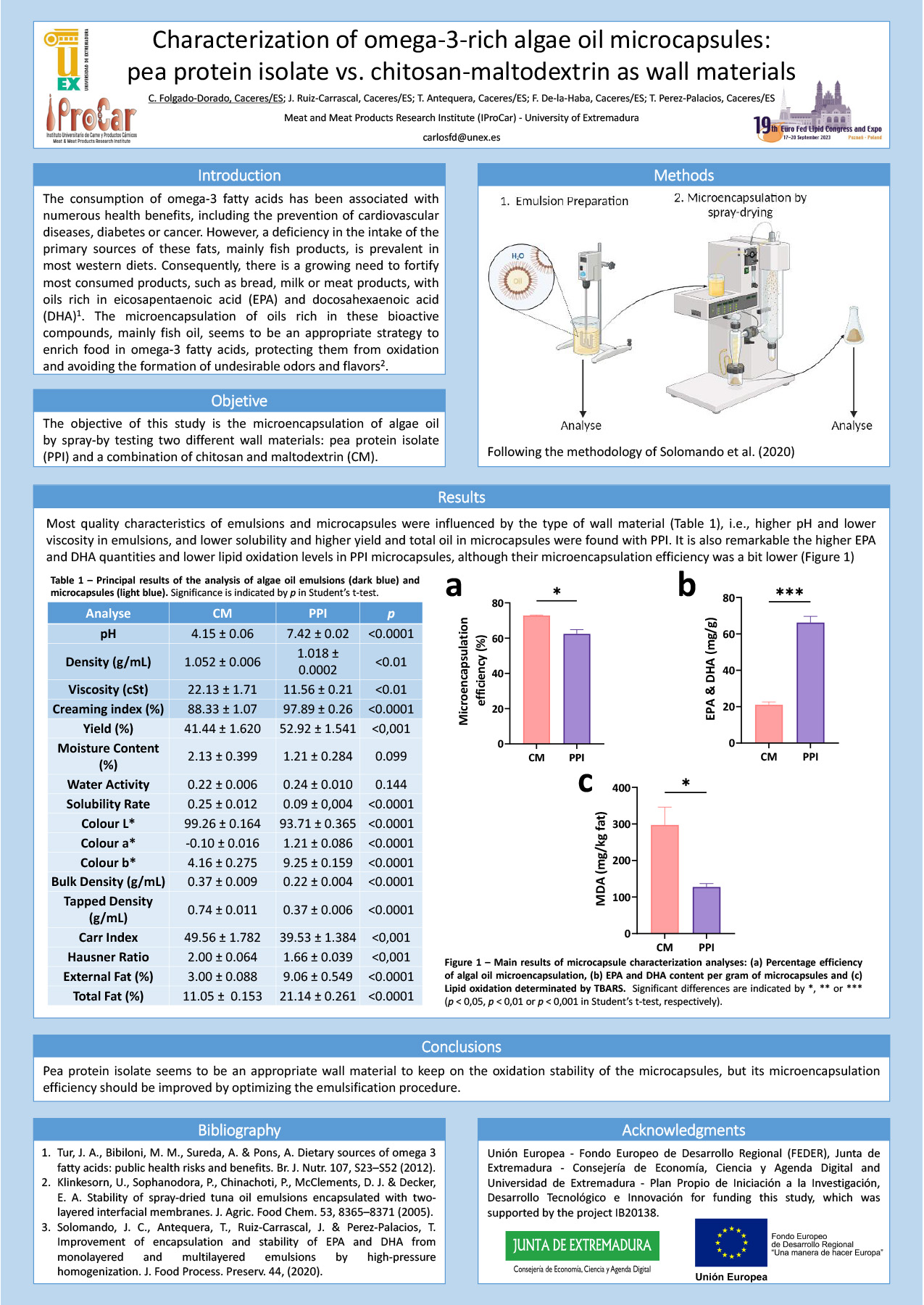The consumption of omega-3 fatty acids has been associated with numerous health benefits, including the prevention of cardiovascular diseases, diabetes or cancer. However, a deficiency in the intake of the primary sources of these fats, mainly fish products, is prevalent in most western diets. Consequently, there is a growing need to fortify most commonly consumed products, such as bread, milk or meat products, with oils rich in eicosapentaenoic acid (EPA) and docosahexaenoic acid (DHA) 1 . The microencapsulation of oils rich in these bioactive compounds, mainly fish oil, seems to be an appropriate strategy to enrich food in omega-3 fatty acids, protecting them from oxidation and avoiding the formation of undesirable odors and flavors2 . The objective of this study is the microencapsulation of algae oil by spray-by testing two different wall materials: pea protein isolate (PPI) and a combination of polysaccharides, chitosan and maltodextrin (CM). For that, algae oil emulsions were firstly elaborated and then spray-dried. Emulsions were analyzed for pH, density, viscosity and creaming index, and microencapsulation yield and efficiency, moisture, water activity, instrumental color, solubility, density, fatty acids content and lipid oxidation were determined in the microcapsules. These studies revealed that PPI microcapsules had higher quantities of EPA and DHA and lower oxidation levels and microencapsulation efficiency than CM ones. Thus, PPI seems to be an appropriate wall material to keep on the oxidation stability of the microcapsules, but its microencapsulation efficiency should be improved by optimizing the emulsification procedure.
1. Tur, J. A., Bibiloni, M. M., Sureda, A. & Pons, A. Dietary sources of omega 3 fatty acids: public health risks and benefits. Br. J. Nutr. 107, S23–S52 (2012).
2. Klinkesorn, U., Sophanodora, P., Chinachoti, P., McClements, D. J. & Decker, E. A. Stability of spray-dried tuna oil emulsions encapsulated with two-layered interfacial membranes. J. Agric. Food Chem. 53, 8365–8371 (2005).
